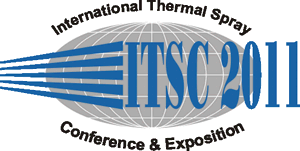
|
3001 |
|
Tuesday, September 27, 2011, Saal A 11:00 AM Aviation Industry 1 |
|
High efficient thermal spraying processes and strategies for aviation industry |
|
Holger Kaßner* / Lufthansa Technik AG, Germany Thomas Gärtner / Lufthansa Technik AG , Germany Eva Höck/ Lufthansa Technik AG , Germany |
|
Thermal spraying (TS) is a basic process not only used for original manufacture parts but even more for maintenance, repair and overhaul (MRO) processes in aviation industry. The significant role of TS will increase further driven by the need for enhanced life time, performance and reduced cost. This also results in higher performance requirements for the TS process. Thereby not only coating characteristics and performance are of note. Also experimental procedures require improved strategies for reduced development time and effort. Last but not least fundamental process characteristics like process time and stability also need to be increased further. In this paper modern concepts and methods for solving them will be presented. Improved coating characteristics and performance could be achieved by modern spraying methods. Thereby not only new technologies like cold spray offer interesting aspects. Also improved standard processes could considerably increase them. Examples for enhanced coating properties and repairs based on new plasma gun technologies and cold gas spraying will be presented. To implement these technologies and improve parameters within a short term and low effort new development strategies are required. Design of experiment (DoE) and mathematical models enable to achieve both. The benefit of DoE compared to conventional results in an up to 50% reduced development time and costs for parameter development. For a shorter process time not only optimal spraying parameters and processes are required. Also door-to-door time and load factor have to be improved. Therefore concepts based on optimized modular machine design and improved human-machine interaction could achieve significant enhancements of up to 70% reduced door-to-door time. However shorter process time and higher load factors are only advantageous when failure rate is low and quality is high. Here statistical process control (SPC) based on particle diagnostic and monitoring of significant process parameters are an efficient instrument. The impact compared to standard processes without SPC is a significant reduced failure rate combined with a reduced sample based quality management. |